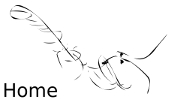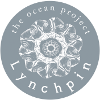Living Data:
Inclusion
2018 Conversations
Disclaimers, Copyrights and Citations
Conversations/Index 2010 2011 2012 2013 2014 2015 2016 2017 2018 2019 2020 2021 2022 2023 2024
I just found this whole new world of creatures amazing and I wanted to protect them.
Professor Michael Depledge comes from the University of Exeter Medical School and the European Centre for Environment and Human Health in the UK. On May 11 we meet at the 2018 Boden conference in Canberra and he tells how he came to study relationships between the health of environments and human health, and to establish an interdisciplinary practice of learning on country.
On Friday 11th May I speak with Michael.
Lisa:
What made you care about human health and environment?
Michael
I think I started to care because I really like the marine environment and my family had a long history of going to sea, and those kninds of things, so as a kid I was brought up seeing the sea shore and so on, and then we had these incidents like the Torrey Canyon which was a large oil tanker that polluted the coastal environment. [The Torrey Canyon tanker oil spill was one of the world's most serious oil spills in 1967]. And that got me really concerned and interested.
Lisa:
How old were you?
Michael:
Probably in my early teens. So this kind of thing went through and I decided that I loved biology at school and then I went to university. And in my interviews to university, that was quite spectacular because somebody asked me why I wanted to go and study the environment and I was talking about my concerns about pollution and they told me I should go off and be a lawyer because that would be a more effective way, and I argued vehemently that that wouldn't be a good thing to do, that I wanted to work with animals, and so on.
I went through my [Science] degree and I loved it because I was taken on field courses in Scotland and worked with all these animals and discovered this incredible range of life. Ninety percent of the animal species on the planet are the invertebrates, shrimps, crabs, worms, those sort of things, and anemones and what have you. And I just found this whole new world of creatures amazing and I wanted to protect them. Yeah, and so, as my career went on I took a small diversion into medical research which was a curious thing because I'd been working on the health of marine animals exposed to polluting chemicals and then I got engaged with a project where there was a problem with treating people with leukaemia with a range of drugs and radiation, and they were getting sick from those particular chemicals and radiations, affecting their lungs. And my job was to go and find out why, so we could change the treatment, so the bone marrow transplant patients could survive. So I did that, and then I worked in two areas, I worked in the environment and human health.
And then set off abroad to Hong Kong to and worked in a medical school there, and there were lots of problems to do with the environment impacting human health. For example, arsenic in seafood causing people to have numbness in fingers and toes. And so I worked on that project, and the rest of my career has been going around to jobs in different countries, to Scandinavia, and back in the UK, working on environment and health issues.
Lisa:
Tell us about the project that brings together two of each from each discipline.
Michael:
So after I'd gone through academia and I'd done those things for a bit I ended up as the Chief Scientist for the Environment Agency in the UK. And when I got to the end of that I really wanted to do something different. And I was invited, happily, to set up a new research program in a brand new medical school where they wanted to increase the volume of research. So I had the opportunity conceive a new research program and happily got a large amount of money from the European Union to set up a centre. I'd tried to set up an interdisciplinary centre in the past but I found that many of the people involved were from different academic departments of the university, so you got really good academics from each discipline, threw a blanket over it, and called it an interdisciplinary centre. But it didn't really work because they all kept one foot in their discipline. So I decided in this new centre I'd set it up so that everyone had to be a member of the centre, that their allegiance was there and they met with each other every single day, and discuss projects every single day. Happily I hired quite young people, early career researchers, people in the age ranges from 25 to 35. And they got so much out of interacting with each other, learning about their different disciplines, working together, playing together, because they lived in this rather remote part of Cornwall, in south west Britain, and it's worked out really well. They've grown up together. And even the few who have left have keep a connection to the centre. So we've built this network around outside the centre, as well as continuing activity within.
Lisa:
So you were effectively learning from each other on country.
Michael:
Yeah, absolutely, yeah. And it's just been a terrific experience because people have been so motivated, to work in this way.
Lisa:
Thank you very much.
Michael:
You're welcome.












